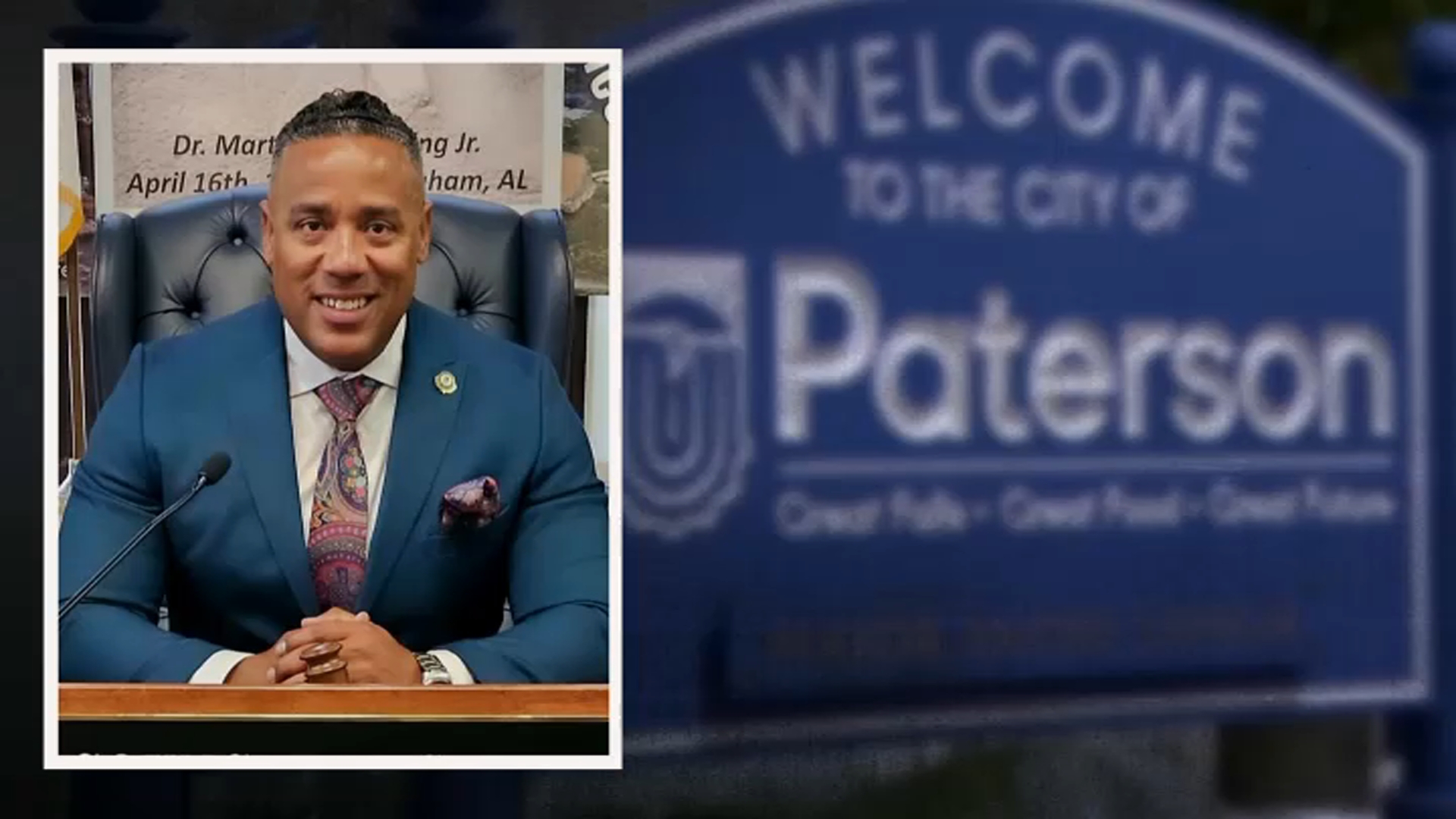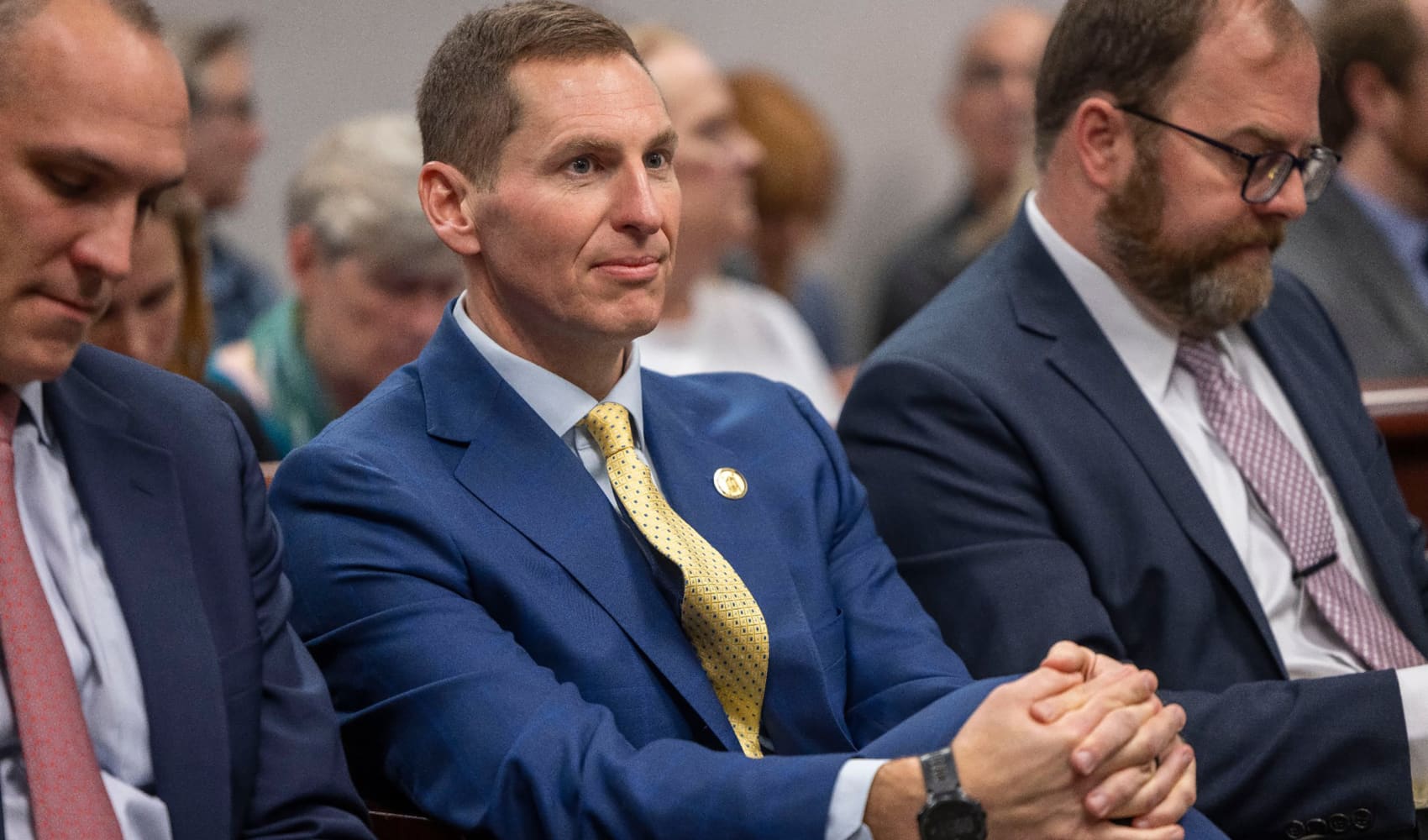Paterson Scandal: New Voter Fraud Charges Filed!
Paterson Council President Faces New Voter Fraud Charges: Is This the End?
Introduction: The Plot Thickens in Paterson
Imagine a political thriller unfolding right in your own backyard. That's essentially what's happening in Paterson, New Jersey, as Paterson City Council President Alex Mendez finds himself entangled in an increasingly complex web of voter fraud allegations. The case, which initially surfaced after the May 2020 election, has taken a dramatic turn with the filing of new criminal charges. This isn't just about politics; it's about the very foundation of democracy – fair and honest elections. Let's dive into the details of this unfolding saga and see what it means for Paterson and beyond.
The Superseding Indictment: A Twenty-Count Punch
The New Jersey State Attorney General's Office isn't pulling any punches. The new charges against Mendez and his wife are outlined in a 20-count superseding indictment. Think of it as the legal equivalent of a plot twist in a suspense novel. But what are these new charges, exactly?
Witness Tampering Allegations
One of the most serious allegations is the attempt to tamper with witnesses connected to the alleged ballot stuffing scheme. Tampering with a witness is a serious offense, as it undermines the integrity of the judicial process. It’s like trying to erase the evidence before it can be presented to the court.
The Backstory: Rewinding to the 2020 Election
To understand the gravity of the current situation, we need to rewind to the May 2020 election. This is where the initial accusations of voter fraud first emerged. Mendez, who has served on the council for nearly five years, including his re-election in 2024, found himself at the center of a storm.
Stolen Ballots and Falsification
The Attorney General's office alleges that Mendez, along with several co-conspirators, stole mail-in ballots, falsified them, and then stuffed them into a mailbox in Haledon. Why Haledon? It suggests a deliberate attempt to skirt local oversight and manipulate the election results. The image of stuffed mailboxes is a stark reminder of the potential for abuse in mail-in voting systems.
Mail-In Voting: A Double-Edged Sword
Mail-in voting became increasingly prevalent, especially during the COVID-19 pandemic. While it offers convenience and accessibility, it also presents unique security challenges. Is it the Achilles' heel of our democratic process?
The Security Concerns
Critics of mail-in voting often point to the potential for fraud, including ballot harvesting, coercion, and impersonation. These concerns are now playing out in real-time in the Paterson case. This case raises serious questions about the safeguards in place to prevent voter fraud in mail-in elections.
The Political Fallout: Ripples Through Paterson
The allegations against Mendez have sent shockwaves through Paterson's political landscape. How does this affect the city's governance and the public's trust in its elected officials?
Erosion of Public Trust
When elected officials are accused of voter fraud, it erodes public trust in the entire system. It makes people question the legitimacy of election results and can lead to apathy and disengagement. Restoring trust will require transparency, accountability, and a commitment to fair and honest elections.
The Legal Process: What Happens Next?
So, what's next for Mendez and his wife? The legal process is complex and can take time. Let's break down the key steps.
Investigation, Indictment, and Trial
The process typically begins with an investigation, followed by an indictment if there is sufficient evidence to suggest a crime has been committed. Then comes the trial, where the prosecution must prove the defendant's guilt beyond a reasonable doubt. The burden of proof lies with the state.
Potential Penalties
If convicted, Mendez and his wife could face significant penalties, including fines, imprisonment, and the loss of his position on the City Council. The exact penalties will depend on the specific charges and the severity of the offenses.
The Broader Implications: A Warning Sign for Elections
The Paterson case isn't just a local story; it has broader implications for elections across the country. It highlights the need for vigilance and robust safeguards to protect the integrity of the voting process.
The Need for Voter ID Laws
Proponents of voter ID laws argue that they are necessary to prevent voter impersonation and ensure that only eligible voters cast ballots. However, opponents argue that these laws can disproportionately disenfranchise minority and low-income voters. The debate over voter ID laws is likely to intensify in the wake of the Paterson case.
Auditing and Recounting
Regular audits and recounts can help detect and correct errors in the voting process. They provide an additional layer of security and can help reassure voters that the election results are accurate. Transparency in the auditing and recounting process is crucial for maintaining public confidence.
The Role of Technology: Can It Help?
Technology offers both opportunities and challenges in election security. Can it help us prevent voter fraud, or does it create new vulnerabilities?
Blockchain Voting Systems
Blockchain technology has been touted as a potential solution for secure online voting. It offers transparency and immutability, making it difficult to tamper with election results. However, there are also concerns about security vulnerabilities and the potential for hacking. Blockchain voting is still in its early stages of development, but it could play a significant role in the future of elections.
The Future of Paterson: Can the City Recover?
The voter fraud allegations have cast a shadow over Paterson. Can the city recover from this crisis of confidence?
Community Engagement and Education
Rebuilding trust requires community engagement and education about the importance of fair and honest elections. Voters need to be informed about their rights and responsibilities, and they need to feel confident that their votes will be counted accurately. Open dialogue and transparency are essential for healing the divisions in the community.
A Call to Action: Protecting Our Democracy
The Paterson case is a wake-up call. It reminds us that democracy is not a passive activity; it requires active participation and vigilance. What can we do to protect our elections?
Voter Registration Drives
Ensuring that everyone who is eligible to vote is registered is a crucial step. Voter registration drives can help reach underserved communities and make it easier for people to participate in the democratic process. Increasing voter turnout is essential for a healthy democracy.
Volunteer as Poll Workers
Volunteering as a poll worker is a great way to contribute to the election process. Poll workers help ensure that elections are conducted fairly and accurately. Your participation can make a real difference.
Conclusion: Lessons Learned and the Road Ahead
The additional voter fraud-related charges against Paterson City Council President Alex Mendez highlight the ongoing vulnerabilities in our electoral system. From alleged ballot stuffing to witness tampering, the case serves as a stark reminder of the need for vigilance and robust safeguards. Restoring public trust requires transparency, accountability, and a commitment from elected officials to uphold the integrity of the democratic process. This saga in Paterson is far from over, but hopefully, it will serve as a catalyst for positive change, ensuring fairer and more secure elections for all.
Frequently Asked Questions (FAQs)
Here are some frequently asked questions about the voter fraud case involving Paterson City Council President Alex Mendez:
- What specific evidence is the Attorney General's office using against Mendez? The Attorney General's office has cited allegedly stolen mail-in ballots, falsified signatures, and video surveillance as evidence. They are also relying on testimony from witnesses who claim to have been involved in the scheme.
- What is the potential impact on Paterson if Mendez is found guilty? If found guilty, Mendez would likely be removed from office, potentially triggering a special election. The scandal could also damage Paterson's reputation and make it more difficult to attract investment and development.
- How does this case compare to other voter fraud cases in the US? While voter fraud is relatively rare in the US, this case is notable for the scale of the alleged scheme and the high-profile position of the accused. It underscores the need for continuous efforts to prevent and detect voter fraud at all levels of government.
- What can ordinary citizens do to help prevent voter fraud? Citizens can help by verifying their voter registration information, reporting any suspicious activity to election officials, and volunteering as poll workers to ensure fair and accurate elections. They can also educate themselves and others about election laws and security measures.
- Are there any proposed legislative changes in New Jersey to address voter fraud concerns? Following the Paterson case, there have been calls for stricter regulations on mail-in voting, including enhanced signature verification processes and increased penalties for voter fraud. Some legislators are also exploring the possibility of implementing voter ID requirements.

